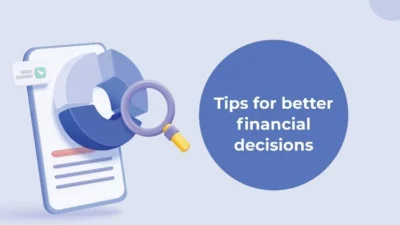Last Updated on June 27, 2025 by Lexy Summer
In today’s digital world, many people are turning to freelance writing as a way to earn money, work from anywhere, and enjoy more freedom. Whether you want to write full-time or make extra income on the side, freelance writing offers a flexible career path with endless possibilities.
If you’re wondering how to get started or what you need to succeed, this guide will walk you through everything you need to know as a beginner.
What Is Freelance Writing?
Freelance writing means you write content for clients or companies without being a full-time employee. You work on a project-by-project basis and get paid for the writing you deliver.
Freelance writers can create:
- Blog posts
- Website content
- Product descriptions
- Email newsletters
- Social media posts
- Articles for magazines or newspapers
- eBooks and guides
You choose your niche, set your own rates, and decide when and where to work.
Why Choose Freelance Writing?
Freelance writing is a great career option for people who enjoy writing and want freedom in their schedule. Here are some benefits:
- Work from anywhere – All you need is a computer and internet connection
- Flexible hours – You set your own working time
- Variety of projects – Every client and topic is different
- Unlimited income potential – The more you write (and the better you get), the more you can earn
- No degree required – Skills matter more than certificates
Freelance writing fits well with many lifestyles, especially for stay-at-home parents, students, and digital nomads.
Start With a Writing Niche
Selecting a specific topic area allows you to focus your skills and connect with clients who need that kind of expertise.
Popular niches include:
- Health and wellness
- Technology
- Personal finance
- Travel and tourism
- Business and marketing
- Lifestyle and parenting
Pick a niche you’re interested in or have knowledge about. This makes writing easier and more enjoyable.
Build a Simple Portfolio
Clients want to see your writing skills before hiring you. That’s why having a small portfolio is important.
You can create:
- A blog with sample posts
- Guest articles on other websites
- Google Docs or PDFs with writing samples
- Short samples written specifically for your target clients
You don’t need many samples—just 2 or 3 well-written pieces are enough to get started.
Learn Where to Find Freelance Writing Jobs
There are many places online where you can find freelance writing work. Some of the most popular platforms include:
- Upwork – Freelance marketplace for all types of writing jobs
- Fiverr – Create writing service listings and get hired
- ProBlogger Job Board – Jobs posted by serious blog owners
- Freelancer.com – A large freelance job platform
- LinkedIn – Connect with business owners and market your services
- PeoplePerHour – UK-based freelance platform for writers and creatives
Start by applying for small jobs to build experience, then move up to higher-paying clients.
Set Your Writing Rates
When you’re new, setting rates can be tricky. Here’s a basic guide:
- Beginners: $0.03–$0.10 per word
- Intermediate: $0.10–$0.25 per word
- Advanced or niche experts: $0.25–$1+ per word
Writers can set their fees based on the type of work—whether by the piece, by the hour, or as a flat rate for the whole task.
As your skills grow, increase your rates.
Master the Art of Pitching
To get freelance writing jobs, you’ll often need to send a pitch—a short message that introduces you and your skills.
A good pitch includes:
- A friendly greeting
- A brief introduction
- A summary of your writing experience
- A few relevant samples
- A clear call-to-action (e.g., “Let me know if you’d like to discuss further.”)
Always personalize your pitch for each client. Avoid copying and pasting the same message.
Stay Organized and Professional
Once you land a few clients, it’s important to stay professional:
- Meet deadlines
- Communicate clearly
- Edit your work before sending
- Keep track of payments and invoices
- Use contracts when working with new clients
Happy clients often give repeat work or refer others to you.
Keep Improving Your Skills
The best freelance writers never stop learning. Improve your writing by:
- Reading books or blogs about writing
- Practicing daily
- Studying top writers in your niche
- Learning basic SEO (search engine optimization)
- Using tools like Grammarly or Hemingway Editor to polish your work
Begin with manageable goals, keep showing up, and trust that your progress will lead to long-term success.
Final Thoughts
Freelance writing is one of the most flexible and rewarding careers available today. You don’t need a degree or special background to start—just a love for writing and a willingness to learn.
If you’re looking for freedom, creativity, and the chance to work with people all over the world, freelance writing is worth exploring. Start small, stay consistent, and believe in your growth. In time, you can build a career that gives you both income and independence.
Frequently Asked Questions
How do I start freelance writing with no experience?
Start by choosing a niche, creating a few samples, and applying for entry-level jobs online.
Is it necessary to have a personal website when starting out in freelance writing?
Not at first. A simple Google Doc portfolio or a LinkedIn profile is enough to get started.
Can I freelance write part-time?
Yes. Many writers begin part-time and later switch to full-time if they choose.
How much money can freelance writers make?
Earnings vary. Beginners might make $100–$500/month, while experienced writers can earn $3,000–$10,000+ monthly.
Do freelance writers need to know SEO?
Basic SEO knowledge is helpful for writing blog posts and web content, but not required for every job.
Is freelance writing competitive?
Yes, but there’s still room for new writers. Quality work, consistency, and professionalism help you stand out.
How long does it take to find clients?
Some writers find clients within a week, while others may take longer. It depends on effort, niche, and platform used.
Can I write for international clients?
Absolutely. Freelance platforms allow you to work with clients from all over the world.

Lexy Summer is a talented writer with a deep passion for the art of language and storytelling. With a background in editing and content creation, Lexy has honed her skills in crafting clear, engaging, and grammatically flawless writing.



